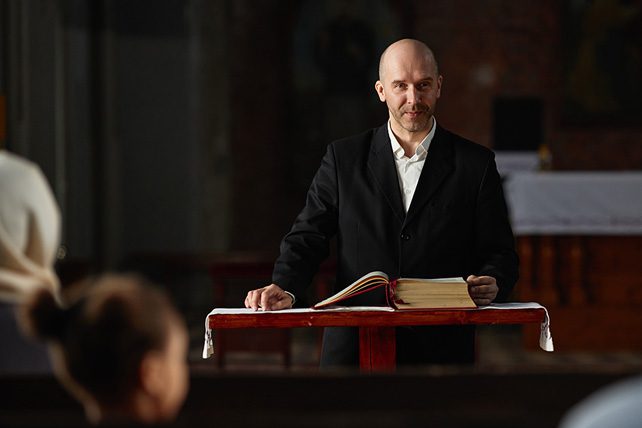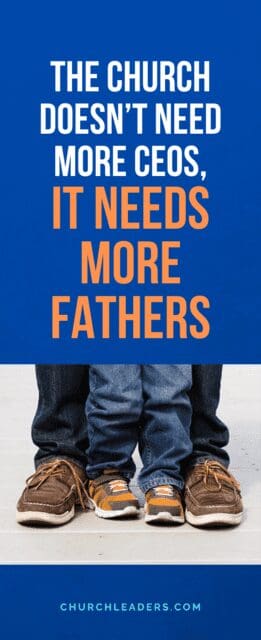There is no end of opinions regarding “the” biblical model of leadership. There is the leader as CEO, servant, shepherd, visionary, teacher, discipler, counselor, chaplain… and to make matters worse, most make their case by discounting the others.
The one model of leadership that is often missing is the one that I do feel is the most biblical. Meaning, it’s the idea that seems to reflect the biblical passages on church leadership the most, which makes it all the stranger that it isn’t being talked about more often. Here it is:
It’s leaders as fathers.
There are some clear reasons this isn’t being discussed. In Protestant circles, it may be because of the Catholic overtones of calling priests “father” or the Pope the “Holy Father.” There is also such a new (and I would say welcomed) openness toward women in ministry that the very idea may seem misogynistic.
But I’ll stand by it. The Bible tells us clearly that the church is a family and is to be patterned after the way families are patterned. In Peter’s first letter in the Bible it says, “You should be like one big happy family, full of sympathy toward each other, loving one another with tender hearts and humble minds” (1 Peter 3:8, LB). In his first letter to Timothy, the apostle Paul wrote, “Treat… older women as mothers, and younger women as sisters….” (1 Timothy 5:2, NIV).
This is why one of the central biblical requirements for pastors is that they lead their families well. Read it for yourself: “(A Pastor) must manage his own family well and see that his children obey him with proper respect. If anyone does not know how to manage his family, how can he take care of God’s church?” (1 Timothy 3:4–5, NIV). The idea is clear that if you can’t lead your family well, you can’t lead a church. Why?
Because the church is a family.
I also contend for this view as someone who has pastored a church for more than 35 years. I can tell you that the times I have led well, have been at my best and have seen the church flourish the most, have been the times I’ve acted the most fatherly. It’s the same with our staff—when I have the best relationship with a staff person, when I am managing them optimally, when I have the clearest heart and sentiment toward them, is when I am operating from a father’s role.


